|
Walking into the endzone of FedEx Field of the Washington Football Team made everything feel real—not some fantasy about playing professional football, but the reality of graduating college and entering into a new stage in life. In the middle of May, I graduated from The Catholic University of America at FedEx Field. It was an experience filled with much joy, but also some uncertainty. The joy and happiness were palpable throughout the stadium. It was rewarding seeing four long, hard years of work and late nights come to fruition. I felt a happy sense of relief that we had made it through the chaos and craziness of the past three semesters amidst the pandemic. It was exciting getting to celebrate with our friends and family—a truly special ceremony. Later that day, I began to feel some uncertainty mixed in with my joy. Friends were moving back home or across the country. Some friends were starting new jobs while others were going to graduate school. Some friends were younger and would still be at school another year while other friends had full-time jobs. There was a lot still up in the air. Over the past couple of weeks since graduation, I have reflected on that uncertainty and realized that it relates to a lot going on today. There’s uncertainty in starting a new job, in moving, or any type of new beginning. There’s uncertainty in returning to work in person maybe for the first time in a long time. There’s even uncertainty about traveling and going on vacations with differing restrictions. As I reflected on the uncertainty I felt from graduating college, I was comforted by one simple fact: the same Jesus who was present and working in my life before will be present throughout the uncertainty. During the Nicene Creed, we say, “I believe in one, holy, catholic and apostolic Church.” In these four marks of the Church, catholic is referring to the universality of the Church. This is what I found comfort in. Even though I wouldn’t be going to Mass at Catholic University anymore, Jesus would be present at Mass at my new parish community. Even though I wouldn’t have the ability to go to a chapel as frequently, Jesus would still hear my prayers throughout my workday. I found this realization comforting and encouraging – I knew Jesus would be present throughout the uncertainty and the change. I began to think of ways that I could actively embrace the uncertainty by welcoming Jesus into the small day-to-day actions that I knew would come about because of the changes. I set two goals for this uncertain time:
0 Comments
1 Corinthians 13: 4-8 “Love is patient, love is kind. It is not jealous, [love] is not pompous, it is not inflated, it is not rude, it does not seek its own interests, it is not quick-tempered, it does not brood over injury, it does not rejoice over wrongdoing but rejoices with the truth. It bears all things, believes all things, hopes all things, endures all things. Love never fails.” Like many of you, I have been quarantined in my house for the past ten days. I have set up my makeshift home office that moves throughout the day. My wife, on the other hand, is an ICU nurse: three to four days a week, she has been working in the very stressful environment that many of our medical professionals are experiencing. Over our four years of marriage, we have realized setting aside intentional time each day for one another is vital for our marriage. As we endure this pandemic, that intentional time has become even more necessary as we deal with the uncertainty, tension, worry, and fear building up over the day. One of the resources that my wife and I use to structure our time with each other is 1 Corinthians 13: 4-8. Throughout our twelve-year relationship, 1st Corinthians has been something we have continually turned to in both times of joy and struggle. Whenever this passage is read at Mass or during a wedding, I always feel a significant poke in the arm when “love is not rude” is proclaimed. Besides that subtle reminder from my loving wife, this passage always directs us back to our common call to love and support one another, especially during challenging times like today. Every family has had to endure this pandemic differently. However, we all share a call to set aside time to support our spouse, reminding them that our love—when it is centered on Christ and directed towards each other—can endure all things. Due to the stresses of family life, intentional time for prayer and each other are usually the first activities to go. While we dated across states, we made sure that our relationship included intentional time, eventually becoming a virtue of our relationship. When we married and began living under one roof, we assumed this time would happen automatically, but reality was the opposite. My wife’s schedule as a night nurse and mine as a pastoral associate meant our schedules were never in sync. We noticed our interactions becoming superficial, which caused us to easily become frustrated with each other and unaware of what the other was experiencing throughout their day. It took us almost six months to realize that even though we were living under the same roof, we had to be more intentional about our one-on-one time with one another. Pope Francis emphasizes couples setting aside this intentional time in his Apostolic Exhortation, The Joy of Love, “Time is needed to talk things over, to embrace leisurely, to share plans, to listen to one another and gaze in each other’s eyes, to appreciate one another and to build a stronger relationship...” (24). For my wife and me, this passage reminds us of how important setting distractions like our phone or TV aside for even 5 minutes, looking each other in the eye, and being able to share the highs and lows of our days is for our marriage. Pope Francis provides every couple the reminder that the love that is shared between spouses is ever-growing and takes the work of both partners to refine it. This meaningful time is more important during these weeks of quarantine, with the disease’s impact on the nation and our own family and friends, leading us to despair about the future. Too easily, we can let fear get the best of us, causing tempers to flare or directing emotions at our spouse or families. Like my wife and I when we first married, this intentional time will not automatically happen now that we are forced to be under the same roof. I would like to share some resources that my wife and I have personally found helpful throughout our relationship to support each other emotionally and spiritually. Hopefully, they will provide some structure to this time with your families, provide solace during these weeks, and become habits you will carry on after this pandemic passes.
[1] Francis, Amoris Laetitia,133. [2] Gottman, “The Natural Principles of Love,” 15.
Silence is an old friend—one I don’t often get to spend quality time with. But when I do, we give each other a knowing glance, a subtle nod, a familiar smile. It doesn’t matter how many days, weeks, or months have passed—we can pick up right where we left off without any sheepishness. Today, I come in through the front door, take off my coat, and settle into the warm embrace of silence, letting it melt any frost that has accumulated in my heart. Silence knows I’m not able to visit as often these days, but she doesn’t hold a grudge or look at me disapprovingly. She gives me a tender look and welcomes me with open arms – relishing every moment I give her to rejuvenate my soul. And she can work very quickly—a few minutes, hours, (in this case) a day. Any time spent in her company is restorative. She is generous with herself. I was reminded of that this past weekend when I attended a Silent Day of Reflection at the Catholic Apostolate Center’s headquarters at Green Hill. This little oasis sits on 14 acres just a few miles outside of the hustle and bustle of Washington, D.C. and offers ample spaces, both indoor and outdoor, for prayer and reflection. The theme of the day was The Beatitudes. The schedule was sprinkled with powerful moments of prayer: Mass, Adoration, Confession, a reflection on the day’s theme, and Lectio Divina. There was also time for quiet personal prayer. Participants had the opportunity to walk the grounds, enjoy the gardens, pray in the chapel, journal, color, or simply rest. The home of the Pallottine Fathers and Brothers of the Immaculate Conception Province is a treasure, offering a welcome place of retreat, gathering, and prayer. The Pallottines, as well as the staff of the Catholic Apostolate Center, are pleased to invite and welcome those seeking formation, personal enrichment, rejuvenation, or spiritual refreshment to Green Hill and look forward to continuing to provide opportunities to do so. As a wife, mother, blog editor, homeowner, and budding gardener, I find my days often blur in the hasty movement of time. I frequently long for silence and reflection, but do not have the time or space for it. The Silent Day of Reflection organized by the Catholic Apostolate Center was an answer to a prayer and a gift for my spiritual life. After spending the day at Green Hill, I got up from silence’s hearth reluctantly, feeling gently lulled, peaceful, held. It was a refreshing day of encounter with God amidst the beautiful backdrop of nature, and I didn’t want it to end. Not all have the wisdom to seek silence, to receive the gifts she awaits to impart. We often take her for granted, drown her out, or try to replace her—convincing ourselves she is old-fashioned, irrelevant, unnecessary, extinct. She awaits all the same, ever ancient, ever new—the immortal gift of her Creator, the vehicle of His encounter, the respite of all souls. Will you seek her? To learn more about Green Hill and upcoming events, please click here. “I have no gift to bring…that’s fit to give the king.” -The Little Drummer Boy What do I have to give to the Lord this Christmas? It’s a question I find myself asking as we hum along the Advent season. Amidst the beautiful lights, the Advent wreaths, the Christmas trees, and the dark nights, I turn to different types of Christmas music to help me prepare for the coming of Jesus. I love the enchanting songs and hymns written specifically to prepare us for this season. I love songs like “O Come, O Come Emmanuel,” “What Child is This?” and “O Holy Night.” But lately, as I’ve been reflecting on what I have to give the Lord this Christmas, I think of another of my favorite songs: The Little Drummer Boy. It’s a simple song. A little drummer boy is invited to meet the Newborn King and offers to play for him. It’s a touching story that has become almost like a Lectio Divina meditation of the birth of Christ for me throughout the years. This song places me easily within the scene: a cold, dark night, the smell of strewn hay, the breath of cattle, a humble couple, a group of shepherds, and then, a manger holding Christ Himself: the Creator, the Savior of the World, the King of Kings. In my meditation, I take the place of the little drummer boy. He, like Jesus, is poor and humble. Upon seeing the gifts of the magi and the recipient of the gifts, he reflects, “I have no gift to bring…that’s fit to give the king.” He has no frankincense or myrrh, no gold or silver. He has only himself and his drum. Most of us are like the little drummer boy. The question he asks is the question that resounds in each of our hearts. What could we possibly give to the God of everything? What gift could we bring that’s fit to give the King? The drum of the little drummer boy symbolizes his gifts and talents. It is perhaps his singular greatest treasure. And so, in his humility, with love and tenderness, he offers the Christ Child all he has: a song on his drum. The song almost prefigures the coins of the widow in the Gospel of Mark. The little drummer boy, like the widow, gives his greatest treasure. In response to the widow’s offering, Christ says, “I tell you truly, this poor widow put in more than all the rest.” Christ’s smile in the song of the Little Drummer Boy seems to signify the same. These are the greatest gifts the Lord asks of us: what we hold most dear, the beautiful gifts and talents he has bestowed on us, what makes us ourselves. We love him best, we glorify him best, when we give of ourselves and strive each day to become the man or woman he has created us to be. What can we give the Newborn King this Christmas? Our hard work, our sleepless nights, our chores around the house, the virtues we’re working to perfect, our acts of faith, hope, and love. We can give him our time in prayer, our offerings at Mass, our acts of service to those around us, our talents in art, business, and sports. The little drummer boy’s reward for his performance is the smile of Jesus. What a touching, beautiful reward! It has led me to wonder what I can do for God each day to make Him smile. Imagine if this were what motivated each member of the Body of Christ – what a vibrant Church of missionary disciples we would have! May this be our goal during the Advent season: to make the Christ Child smile in the giving of ourselves. As we continue to prepare for the coming of Jesus on Christmas, I invite you to reflect on what you have to give the Newborn King. What is your drum? What can you do throughout this season to honor Christ? What are a few ways you can make the child Jesus smile? For more resources to guide you through the Advent season, click here. My sacrifice, O God, is a contrite spirit; a contrite, humbled heart, O God, you will not scorn.” – Psalm 51: 19 During my graduate program at The Catholic University of America, I had a chance to take a class on the Psalms. Not only did I learn a lot of information about the psalms, but also my perspective on prayer changed. The professor taught us about the humanity of the psalms: each one is riddled with human emotion and experience. The psalms show us that our prayers to God do not have to be perfect. Rather, our prayers should be honest because we are placing our trust in Him. This Lent, I decided to pray more with the psalms. Over the past few weeks, I’ve done this by praying the Liturgy of the Hours and doing Lectio Divina. Praying with and contemplating the psalms this Lent has really helped deepen my relationship with God. It has also helped me in my role as a Youth Minister. So far, God has reminded me of two principles that we should remember while reading the psalms: 1) the psalms are a mirror to your soul and 2) You should allow the psalms to be a guide to your life. One psalm that the Church uses throughout the season of Lent is Psalm 51. Psalm 51 is titled “The Miserere: Prayer of Repentance” and the first two verses tell us that this prayer is the prayer David prayed after the prophet Nathan had told him he had sinned (cf 2 Kings 11-12). By praying this psalm throughout the season of Lent, we are reminded how much we are in need of God’s mercy. No matter what we’ve done or what we will do, God always calls us back to himself. He constantly invites us to repent for our sins and be reconciled with him. God’s mercy awaits us in the Sacrament of Reconciliation. We are all sinners. By using Psalm 51 as a mirror to our own souls, we know that we are in need of repentance. Through the Sacrament of Reconciliation, the Lord can wash us so that we can become “whiter than snow” (Psalm 51:9) Psalm 51 is also a great prayer to guide a Christian’s life. We are imperfect beings living in a broken world, and we encounter sin every day. It is only through God’s abundant compassion that he blots out our sins. Verse 12 says: “A clean heart create for me, God; renew within me a steadfast spirit.” As Christians, we are called to repentance and conversion. God always calls us to allow him to change our hearts to bring us closer to his own heart. By continually offering our own hearts to him, God will do great things throughout our lives. Lent is a time of repentance and turning our hearts back to God to prepare for Easter. Through praying with Psalm 51, we can be reminded of our own brokenness. We can also be reminded to offer our heart to God in every prayer and action that we do in order to allow him to create in us a clean heart. Question for Reflection: How can you pray with the psalms this Lent? Choose one psalm this week to reflect on. "Good morning and welcome! Today, we celebrate the Xth Sunday in Ordinary Time. Please stand and join in singing hymn number…" Most of us will hear these words, or words very close to them, for over thirty Sundays a year. After the joyful season of Christmas, it can seem too ordinary, almost boring, to return to Ordinary Time in the Liturgical Year. Instead of the extraordinary stories of Christ's birth in the Incarnation, we've gone back to the Jesus stories many of us grew up hearing: Jesus healing lepers, chastising Pharisees, and preaching to crowds. While Jesus’ ministry is anything but ordinary, our familiarity with the stories of the Gospel often desensitizes us to their extraordinary depth and power. It’s much easier to see the seasons of Christmas and Easter, as well as Advent and Lent, as extraordinary. They're special seasons of the Liturgical Calendar, set aside to celebrate and reflect on the greatest mysteries of our faith: the Incarnation and the Passion and Resurrection of Christ. These liturgical times make us feel our faith in a more visceral way. There's nothing like the gut-wrenching Passion narrative or the beautiful story of the Nativity to set our hearts ablaze for Christ! But if our experience of the Christian faith was nothing more than an emotional high, we would never be able to see Christ in anything but the heavily emotional experiences. That's what Ordinary Time gives us: it sustains our faith between the emotional highs and lows of Christ's birth, death, and resurrection. It reminds us that God is often most present to us in our ordinary humanity. May we not forget that Christ himself lived ordinarily for thirty years as a carpenter’s son in Nazareth. It's in Christ's day-to-day ministry that He meets people where they are and experiences the human condition with them. When He forgave the woman at the well, it wasn't at a big celebration, but in the very ordinary act of gathering water. When He called Zacchaeus down from the sycamore tree, all He wanted to do was share a meal. When He flipped the moneychangers' tables at the Temple in anger, He was there for the weekly observance of the Sabbath. Ordinary Time isn't about the humdrum monotony of life. It's about the slow, incremental action of the Holy Spirit in our lives. It's about, as St. Vincent Pallotti said, seeking God in all things. Just as we get up every day and go to work, we are called to use Ordinary Time to get up every day and give our best to God. So what can we do to live Ordinary Time well? The options are endless! —Maybe you like studying Scripture, but don't know where to go deeper? Take a look at the practice of Lectio Divina. —If you feel a strong draw to the Liturgy, try attending Daily Mass once a week or following the Liturgy of the Hours. —Do you sense a call to serve more with more intentionality? Explore the needs in your community. It doesn't have to be a Church ministry to be service! After all, we're given the instruction to "Go forth!" at the end of every Mass. The beauty of our faith is that there are so many ways to experience God in our lives, to connect with Him and bring His message of love to the world. It doesn't matter which way we choose to work on our relationship with Him, so long as we do so with intention. A healthy challenge for us all might be to pick just one practice to begin making into a habit during Ordinary Time. May we invite God to shift our perspective on the “ordinary” and help us see His extraordinary presence and grace in our journey of faith! Over the past week (November 13-19), many parishes in America have been celebrating National Bible Week, annually organized by the United States Conference of Catholic Bishops to help us grow deeper in love and knowledge of the scriptures in service of our faith. It’s also a fitting way to cap off the Jubilee of Mercy which officially ends on November 20. To commemorate the occasion, the bishops have chosen as the week’s theme, “The Bible: A Book of Mercy.” The Bible is not just a moral guide, a historical document, or literary achievement. While it may be all those things, it’s so much more for us as Catholics. As the Catechism states, the Bible is where “the Church constantly finds her nourishment and her strength” (CCC 104). I’d like to reflect on three areas in the Word of God where we can all find nourishment: prayer, study, and mission. Prayer “When you read the Bible, God speaks to you; when you pray you speak to God”. – St. Augustine The same Holy Spirit who inspires the scriptures also awakens the desire in our hearts to pray. In my experience, it’s often the case we hear (rightly) about the importance of reading and praying with the Bible, but we’re not exactly sure how to do so. That’s where the time-tested practice known as Lectio Divina, or “Sacred Reading,” is a truly wonderful spiritual gift to the Church. Pope Emeritus Benedict XVI made a special point of mentioning lectio divina in Verbum Domini, n.86-87. Just a couple of weeks ago, I shared the method of lectio divina with the RCIA class I lead and challenged them to give it a try. The next week, one of the participants said how much it helped his experience of praying with the Bible, especially how to begin and conclude a time of prayer, and how to spend the time between. If you don’t know where to start or passage to choose, try just using the Gospel of the day in the Church’s calendar of readings at Mass. That’s a great way to provide continuity day-to-day as well as connect us to the prayer of the universal Church. Study “Ignorance of scripture is ignorance of Christ.” – St. Jerome While it’s certainly true that knowing about Jesus is not the same as knowing Jesus, the saints and great teachers of the Church through the ages constantly testified that a faithful study of the Bible leads to real intimacy with God. Undertaken in a spirit of humility and truth, study is even an act of love. In this spirit, the USCCB highlights that this year marks the 51st anniversary of the Second Vatican Council’s Dogmatic Constitution on Divine Revelation, Dei Verbum, which was a monumental statement on the place of the Bible in the life and teaching of the Church. National Bible Week provides us with a good reason to read Dei Verbum, or at least part of it. If you don’t have time to read the whole thing, check out the first section on “Revelation Itself”. It contains the essential foundation of our faith that God is the source of all revelation and that “through divine revelation, God chose to show forth and communicate Himself and the eternal decisions of His will regarding the salvation of men” (n. 6). In other words, if we want to know the Lord’s will for us, we have to turn to the scriptures. Mission “Faithfulness in mercy is the very being of God.” – Pope Francis In Pope Francis’ Wednesday catechesis series quoted above, our Holy Father makes the point that the Bible is truly a book of mercy, and that mercy is always accompanied by a call to mission. The words of scripture resist our all too human and artificial attempts to separate beliefs from action. One of the things my bishop, Archbishop Lori of Baltimore, is fond of repeating is, “Just because it’s the end of the Year of Mercy does not make it now the Year of Judgment or Severity!” If we lose contact with the words of scripture, we run the risk of losing touch with the concrete Corporal and Spiritual Works of Mercy that the Bible continually challenges us to make an everyday part of our lives. If you are looking to go deeper in the Bible or just need help getting started, you can check out the great resources available at places like the Catholic Apostolate Center Prayer and Catechesis page and the USCCB’s National Bible Week website to help guide your journey. One of the most exciting, profound, yet sometimes awkward and unnerving places of parish ministry involves welcoming new Catholics officially into the Church through what is called the Rite of Christian Initiation of Adults, or RCIA for short. Many parishes are now gearing up for the next season of RCIA, which generally runs from early Fall and concludes with the Easter Vigil (this year on April 15, 2017). Over the years, I’ve had the opportunity to serve and lead RCIA in a few parish settings and have been blessed to accompany some friends and family members through the process. But every year there are things I learn and need to be reminded of to facilitate a truly transformative time for the candidates and catechumens. Below, I’d like to offer some perspective, as well as a few pitfalls to avoid that have made a difference in the way the teams I’ve been a part of approach this important ministry. Speak their Language For those of us who grew up Catholic or actively learn and read about our faith, we become very familiar with the vocabulary and theology of the Church that is typically foreign and confusing to newcomers. Don’t assume people know what you are talking about, or what a word or acronym (even RCIA!) means. People are learning a new language of faith, which requires patience, clarity, and practice. Without patience and clarity, people feel alienated and lost, not impressed, and you risk having your faith come off as pretentious and antiquated, not living and effective. Teach Them to Pray Going off the last point, we should remember that prayer is the primary language of the faith. This is based in the ancient Catholic spiritual axiom, “Lex orandi, lex credendi.” The truth is, we assume people know how to pray, but prayer takes learning and practice, just like anything else. Prayer is necessary for living out the Catholic life beyond RCIA, but instead of just telling people to pray, we need to actively teach new Catholics how to pray by praying with them. Do some form of prayer together each week—the Rosary, Lectio Divina, a litany—to expose people to the richness of Catholic spiritual life. If we leave participants with anything, let it be the desire and ability to pray. Learn Their Story As passionate teachers of the faith, RCIA leaders often love to share their experience and favorite subjects about the Church and our faith. That’s important, but we often risk talking when we should simply be listening. Be mindful in giving the candidates and catechumens plenty of time to speak and share their story with one another, not just for a brief minute the first day, but also as part of an ongoing process that extends the whole course. Think Outside the Classroom Learning the content of the Catholic faith is essential, no doubt about it. But often our approach gives the impression that church teachings only live in the pages of textbooks. If all learning about the faith happens in the classroom, it has a tendency to stay there. Look for ways to make connections between Catholic beliefs and tradition and real action and practices. Learn about the corporal and spiritual works of mercy by scheduling time to go out as a team, do a few of them together, and then reflect on them. In Baltimore where I live and work, we are surrounded by some amazing Catholic historical and religious sites. We decided, “Why not incorporate that into our RCIA experience?” Instead of just reading about the saints, we planned field trips to the churches and homes of local saints. RCIA became a more memorable experience that expanded horizons and made people feel at home in their new faith family. Build a Strong Team Your most valuable asset is a dynamic and cooperative RCIA ministry team. I’ve heard of RCIA teams that actually actively disagree and challenge one another over church teachings in front of the class. Different personalities and gifts are important, but they should work in unity. Be mindful of what kind of personalities and gifts will resonate with the experience of people going through your program. Think Ahead New converts are frequently powerful and fresh witnesses to the joy of their faith and are often ready and excited to get involved. Before the RCIA process is over, start looking for opportunities to move new Catholics into the service opportunities and ministries of your parish. I have been taught lectio divina in the past, which I practiced fervently at one time and set aside as I pursued other spiritual interests. Lectio divina, though, has never been put together for me quite the way Fr. Chris Hayden (a New Testament scholar, author, and a priest in the Diocese of Ferns, Ireland) was able to do when I recently attended his seminar “Praying the Scriptures.” As a result, I have refreshed my own spiritual life and have reincorporated lectio divina into my spiritual repertoire. My point here is not to relay new facts but (as Fr. Chris would say) to rehearse what we already know – to cement who we are as a people who want to pray, who want to grow in the spiritual life.
Lectio divina (Latin for “divine reading”) was not something new to Christians but flowed out of the Hebrew method of studying the Scriptures, haggadah, or learning by the heart: “The word is very near to you; it is in your mouth and in your heart for you to observe” (Deut 30:14). While many Church Fathers stressed the prayerful reading of the scriptures, Origen is credited with the first use of the term “lectio divina” in the 3rd century: “While you attend to this lectio divina, seek aright and with unwavering faith in God the hidden sense which is present in most passages of the divine Scriptures” (Epistle to Gregory 4). Traditionally, lectio divina is a Benedictine practice of praying the scriptures that consists of reading, meditating, praying, and contemplating God’s Word in order to grow in our relationship with God. Saint Benedict first established it as a Monastic practice in the 6thcentury in which the four parts were not so much steps but rather moments prompted by the Holy Spirit. During the 12th century, the Carthusians formalized a scholastic approach (“the Monk’s Ladder”) of lectio (reading), meditatio (meditation/reflecting), oratio(prayer/responding), and contemplatio (contemplation/resting). We distinguish lectio divina from reading the Bible for enlightenment or encouragement, which we may do individually or together as in a Bible study group, and from praying the scriptures in common. Lectio divina is a practice that uses thoughts, images, insights, and inner silence to enter into a conversation with God. There are varying approaches to lectio divina, but in reality, simplicity is at the heart of the practice. After Vatican II and the document Dei Verbum that encouraged lay people and priests to use lectio divina, there has been a resurgence in its exercise. When we read Scripture, we should be doing so not just as an intellectual activity but also as a means of gathering its intention and meaning for our lives. Lectio divina will transform you for transformation is at its core – whether you realize that transformation consciously or not, and whether you reflect that transformation visibly or not. To appreciate fully lectio divina, we must understand prayer as a relationship between God and ourselves. Through prayer, we enter into the abiding relationship of unconditional love of the Holy Trinity. Three key underpinnings of our prayer life should be humility, heart, and listening. In prayer, we enter into humility, deflating our egos, realizing we are not God. Our humility helps us discern the true self from the false self. We continue to pray in order to break open our hearts to God, to realize what is going on inside ourselves for the heart of prayer is not what we get but rather what we become. We all know we should be receptive to God heeding the advice of Eli to Samuel, “Speak Lord, your servant is listening” (1 Sam 3:1-10), but many of us might prefer to tell God in prayer, “Listen Lord, your servant is speaking!” As anyone who has been successful with Christian meditation or contemplative prayer will attest, we need to make time and spaces for silence so we can listen. What should we do, though, if our prayers seem to be unanswered? Fr. Chris offers five guides or reasons to continue in prayer (he admits, certainly, there is not just five, but I find the five he presented crucial) even when our prayer life seems to be in a drought:
Because we have the Bible, the living Word of God, our spirituality is not a set of speculations. The Bible is our story – our metanarrative. Our metanarrative unites all of our individual stories into a collective under the overarching theme of God’s eternal love. We find today that the separate designations of yours and mine drive our society; today’s society is certainly no metanarrative, no uniting of us all. Within the Biblical texts, however, we find our collective and individual stories in which we participate along with Christ in the Trinitarian love. We can break our metanarrative into four acts: Act I: The beginning; Act II: The Fall; Act III: Redemption; and Act IV: Fulfillment. Our story begins with life (the “Tree of Life” in Genesis) and ends with life (the “New Order” in Revelations as found in Christ.) We find ourselves living in the drama between Acts II and III, that constant struggle of our lives that tugs between our disobedience and our obedience as we reach for that time of fulfillment. With this acceptance of the Bible as our metanarrative and our understanding of prayer, especially the reasons for continuing in prayer when our prayer life is dry, we can appreciate the power of praying the scriptures to transform our lives. Lectio divinabecomes, in reality, so simple.
Fr. Chris told me not to give him credit, but I must at least thank him for traveling to Great Falls, Montana, for sharing his joy of the faith, and for his stimulating way of presenting prayer, scripture, and the ancient art of lectio divina that inspired me to take a fresh look at how I pray the scriptures. I hope I have given him due credit by relaying the simplicity of lectio divina and its importance in helping us live out our shared metanarrative of God’s love. With Fr. Chris’ inspiration, I renew myself to the simplicity of lectio divina, enhancing my spiritual life, and I pray: God help us live our story, our metanarrative, as we pray for our transformation in You, our destination. Fawn Waranauskas teaches in the Catholic Catechesis Certificate Program for Saint Joseph’s College Online. This blog post was first published on May 27th on the St. Joseph’s College of Maine Theology Faculty Blog. Click here to learn more about our cooperative alliance with St. Joseph’s College Online Our Church breathes through the two lungs of Scripture and Tradition, and as members of the Church we are called to do the same to live a flourishing life. The Catechism of our Church explains the importance of Scripture saying, "And such is the force and power of the Word of God that it can serve the Church as her support and vigor, and the children of the Church as strength for their faith, food for the soul, and a pure and lasting fount of spiritual life" (CCC 131). In order to inspire a life of apostolic vocation with strength and vigor, we begin today our first installment of the "Scripture to Life" series. Through the intercession and example of Our Lady, Mother of God and Queen of Apostles, we hope that the Word of God may be enfleshed by you.
Throughout my spiritual journey I have always struggled with pinpointing the virtue of humility in my life. I don’t think this is due to any lack of desire for the virtue, (it usually isn’t) but rather a lack of true understanding of the virtue. In the Gospel passage of John 13, Jesus washes the feet of his disciples and as he approached, Peter asked, “Master, are you going to wash my feet?” Whenever I read this passage, I always anticipate what Peter says next: “You will never wash my feet!” For some reason, I am always drawn to Peter’s stark rejection of Jesus’ perfect example of humility. If you have practiced lectio divina before, you know that when a part of Scripture confuses the heck out of you, that is exactly the point where you must stop reading, close your eyes, and listen.; It is specifically in this moment that God seeks to transform you through the power of his living word. My meditation on this passage continues with reflecting on exactly what was going through Peter’s mind and heart at the moment of his objection: confusion and feelings of extreme discomfort. It is as if Peter, like many of us who strive for, yet lack the fullness of this most necessary virtue of humility, is saying: WAIT! I don’t understand! Why are you asking me to go this far outside of my “comfort zone” in order to be your disciple? One of the ways I ask my students to relate to Peter’s level of discomfort is by asking them to consider allowing me to wash their feet in front of their friends. As they all cringe and shout “that’s disgusting”, I simply say, multiply your level of discomfort by ten and that is probably how the apostles felt when Jesus began to wash their feet. Nevertheless, Jesus’ invitation to his apostles to accept this teaching is vital to their emerging role in the building up the Kingdom of God and one of extreme importance to his mission of salvation. His disciples must go beyond all levels of comfort in order to serve Him and to create His Kingdom on earth. Likewise, this invitation is extended to us, who are called to be apostles of Christ by joining in the Church’s mission of evangelization. However, like Peter (as well as my students and myself) most Christians in today’s world, cringe when Jesus invites them to serve in ways that take them beyond their comfort zone. Jesus is saying that it is precisely in the moments that lead us beyond ourselves, our fears and our assumptions, that we can do the greatest good in witnessing to the New Evangelization and building up the Kingdom. The great missionary and witness to the New Evangelization, Blessed Teresa of Calcutta once said, “Always take the more difficult road.” To me, there is no path more difficult than the path of humility and yet none more fulfilling. I have felt extremely uncomfortable at times when discerning the call of the Holy Spirit! Nevertheless, like Peter, I am immediately reassured with the words of Jesus’ gentle response: “What I am doing you do not understand now, but you will understand later.” Our task then, like Peter’s, is learning to respond with true understanding and true humility; for this is essential to our Christ-filled witness in the New Evangelization. Jesus, in this paradigm, testifies that when we reject the sin of self-absorption and are ready to serve selflessly we pave the way for God’s people to enter into the Kingdom of God: “For everyone who exalts himself will be humbled, but the one who humbles himself will be exalted.” Lk 14:11 Bart Zavaletta received a B.S. in Kinesiology from the University of Houston and a M.A. in Theology from the Oblate School of Theology, and currently teaches Theology at Skutt Catholic High School in Omaha, Nebraska. |
Details
Archives
July 2024
Categories
All
|
About |
Media |
© COPYRIGHT 2024 | ALL RIGHTS RESERVED

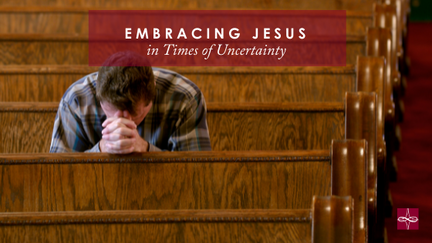





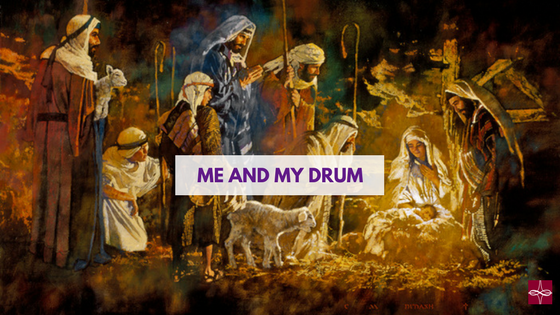

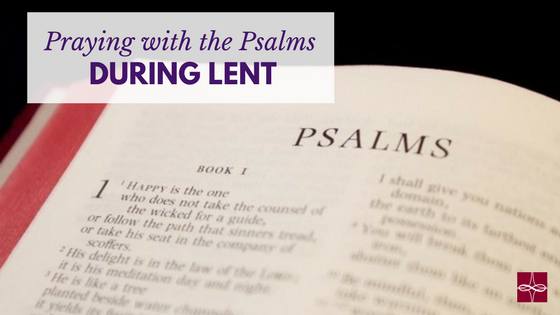

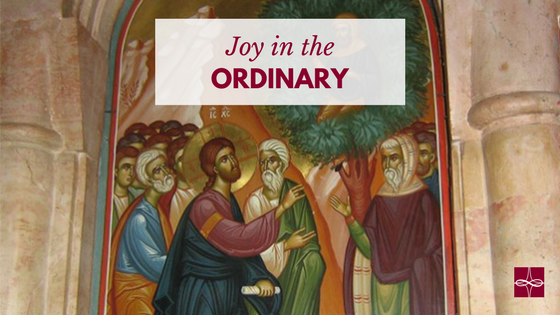

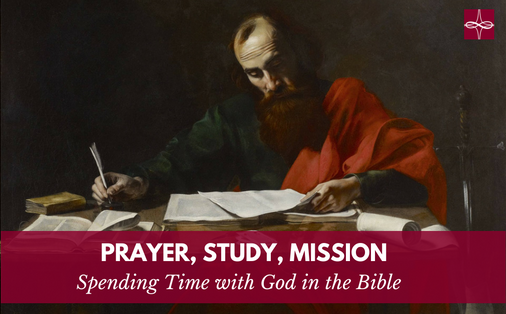

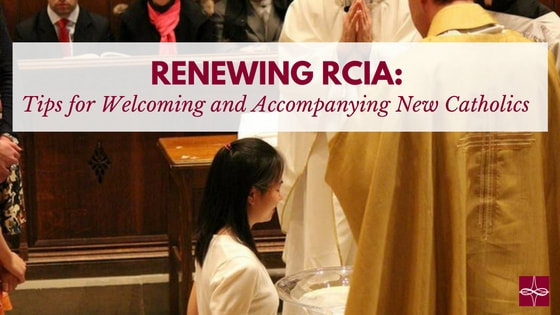



 RSS Feed
RSS Feed